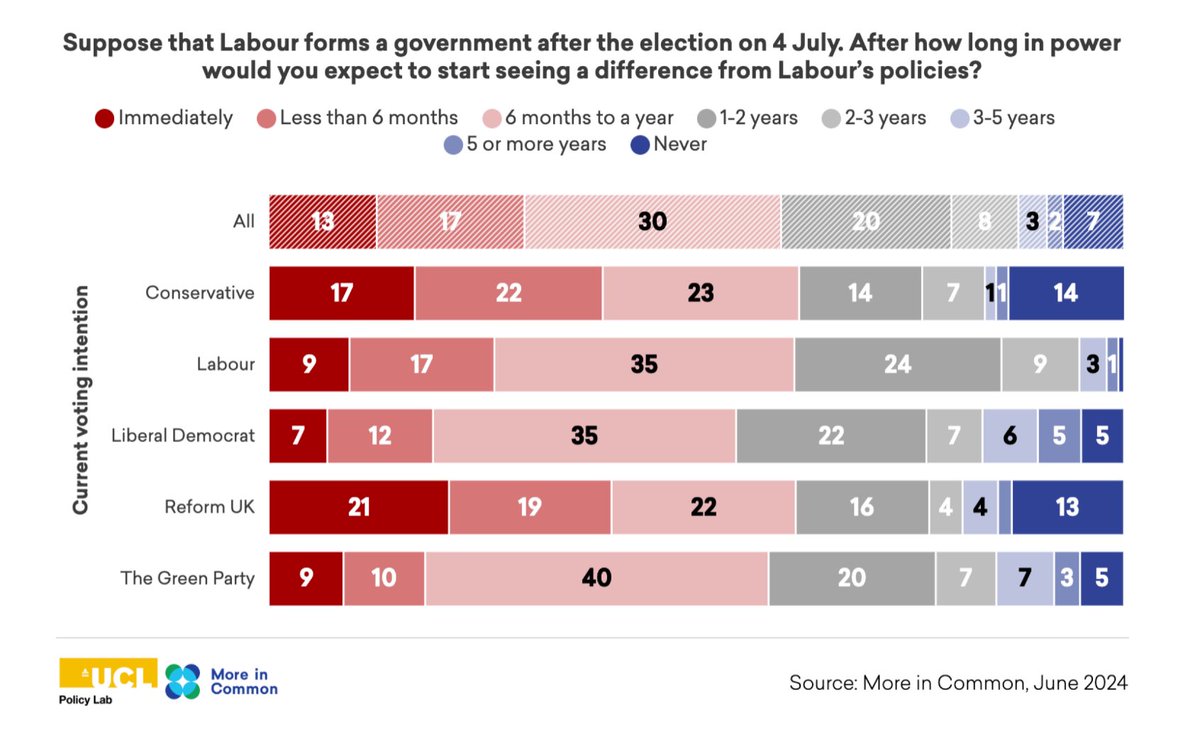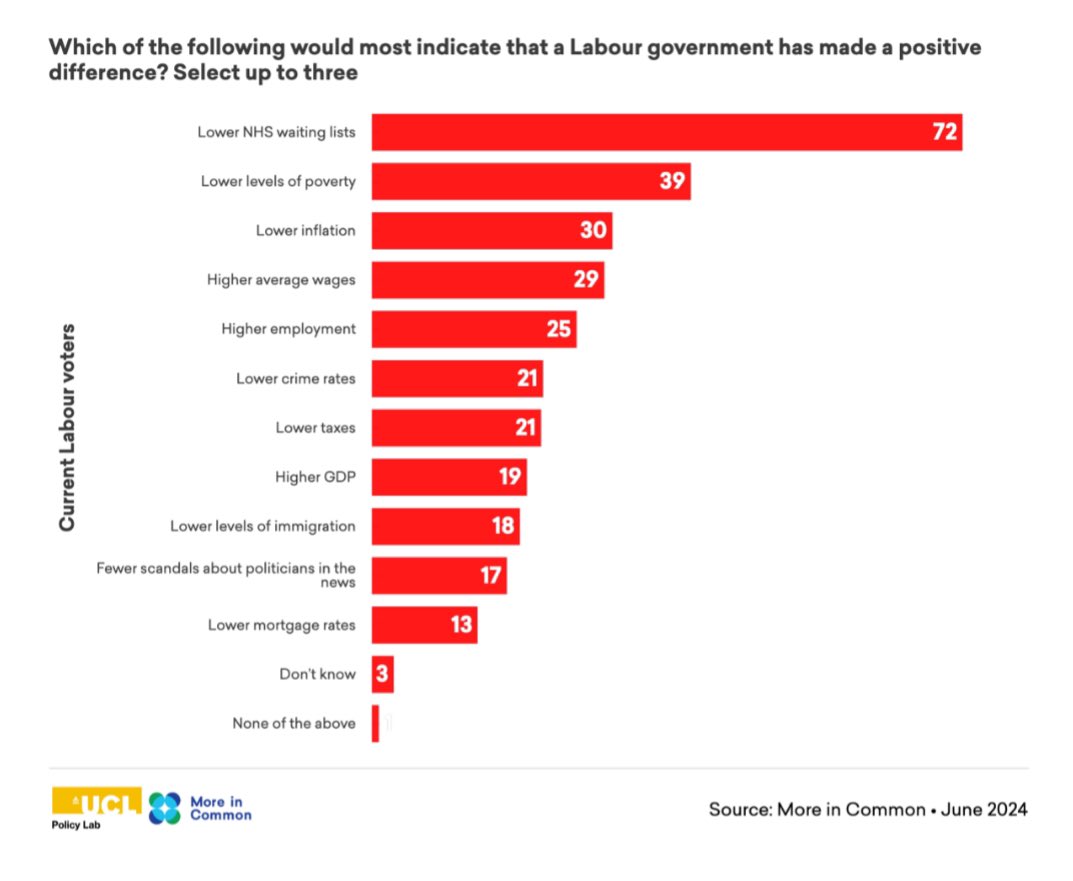🧵How have our Seven Segments voting intention changed since 2019 & during the campaign? Starting with Progressive Activists, the only group where Labour now polls a lower than in 2019. Though this group will still overwhelmingly vote Labour the greens have made the most gains. 

When people talk about left wing discontent they're referring to this group who tended to like Jeremy Corbyn - they're also the only group who are more likely to say Labour's pledges are under not overly ambitious. But it's important not to overstate it... 
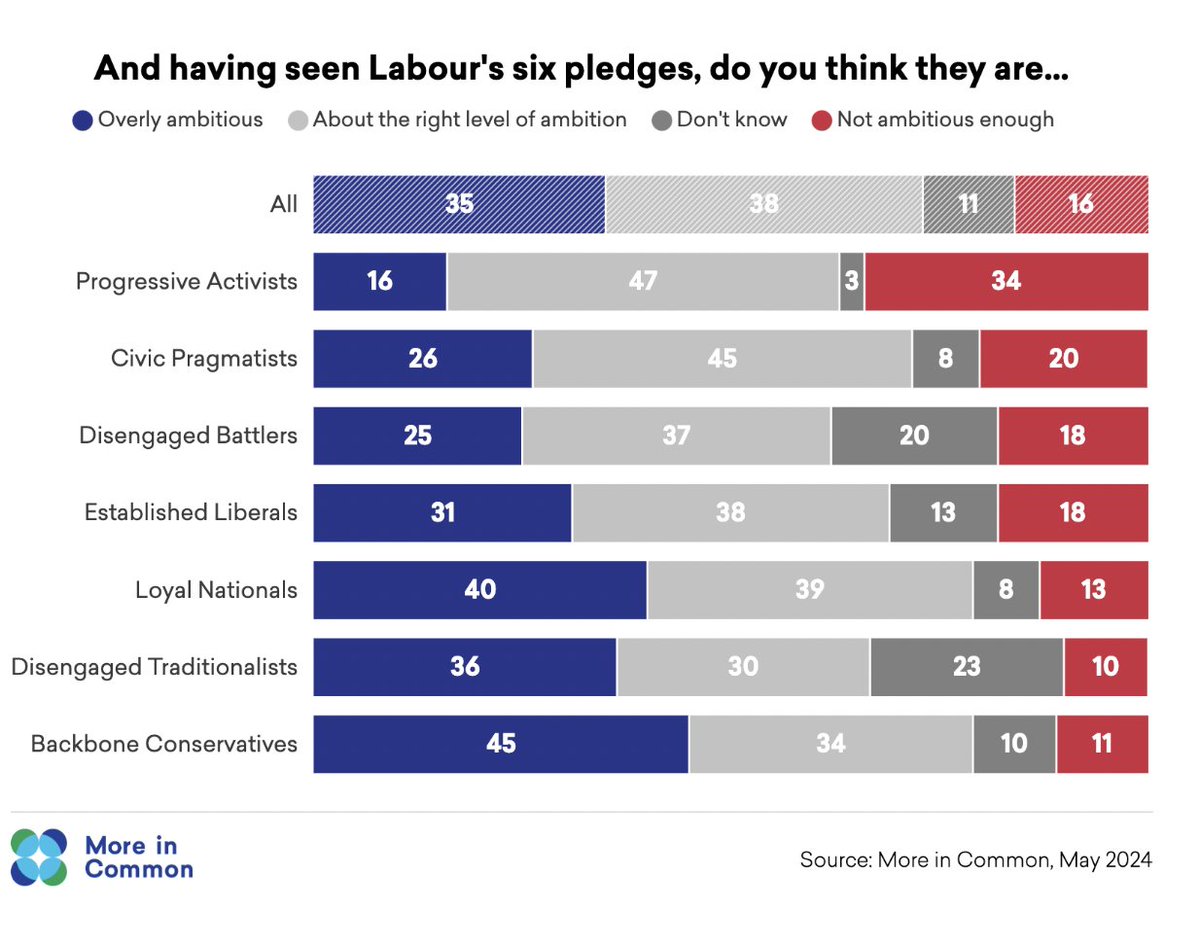
The drop is 10 points in a segment that makes up about 10% of population - something for Labour to think about, but not unduly worry them given many progressive activists are in seats where they can afford to shed some votes... & they've made much bigger gains with other groups.
Next up Civic Pragmatists. Labours vote is up with this more soft left group by about 8 points since 2019, though it has maybe dipped during the campaign. The Conservatives vote has halved since 2019 and Reform has little appeal to this group. 

And this group are by far the biggest fans of Keir Starmer he has a +34 net positive view score with this group, higher than any other group and speaking to the fact Keir Starmer has moved Labour's coalition centre-left since 2019. 

Disengaged Battlers are the most economically insecure group, most urban & most likely to be from minority ethnic communities. Labour's vote is up a little here, the Tory vote is now almost non existent & Reform has made gains off the back of their 'broken system' pitch 
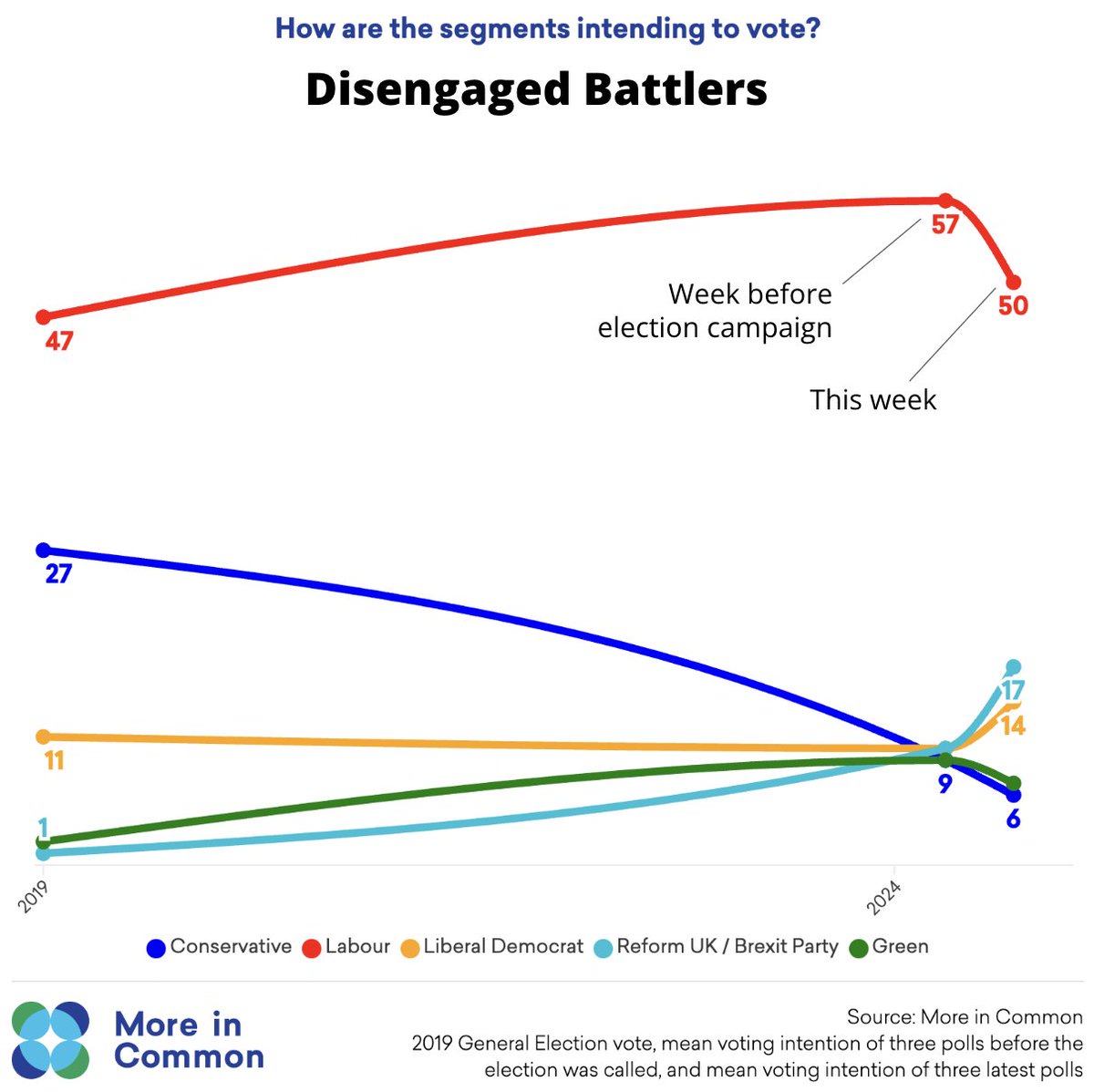
You can see here the extent of Disengaged Battlers distrust and apathy, they are second most likely to say the Government is rigged, and are projected to have the second lowest turnout of the seven segments. 
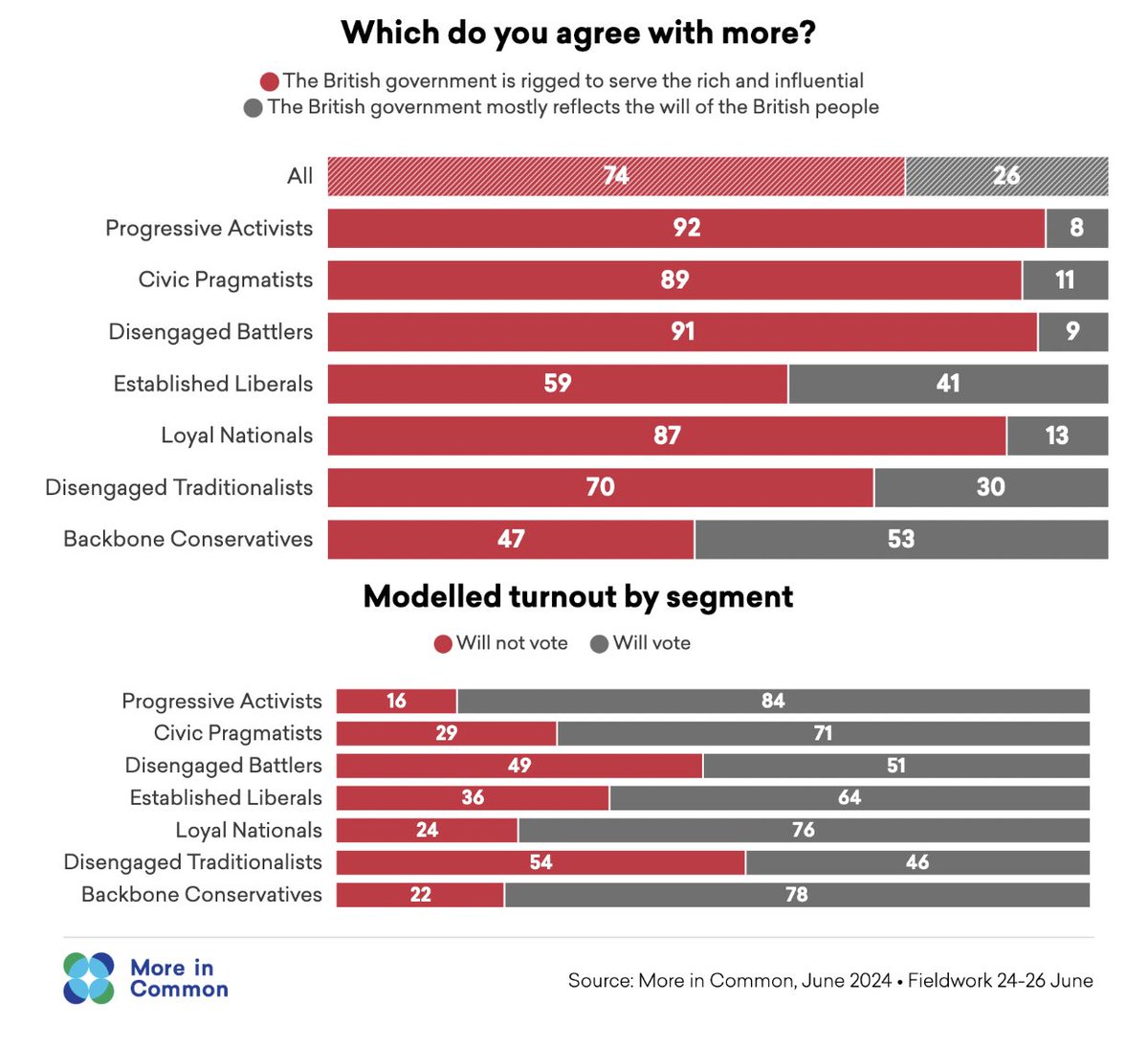
Here arguably is the biggie. Established Liberals, the more blue wall/Cameronite group. The only group where Labour's vote has grown both over the Parliament but also even more during the campaign. The Tory vote is down nearly 20 points with a former base group. 
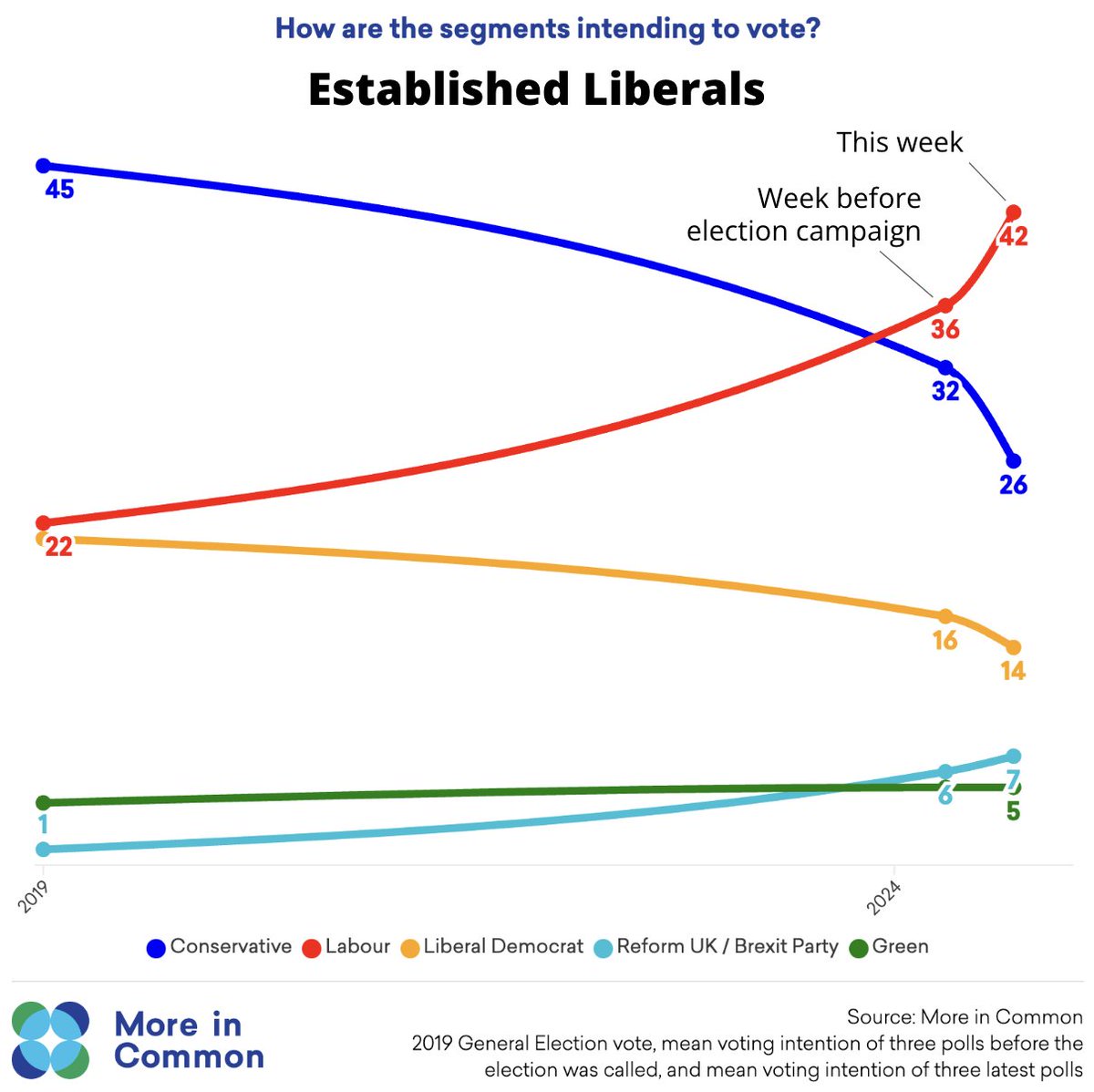
Reform has little support with this more economically right/socially liberal group. But striking just how well Labour are doing with them & it speaks to why they are close to running the board, biggest campaign gains with core Tory voters of the 2010s. 
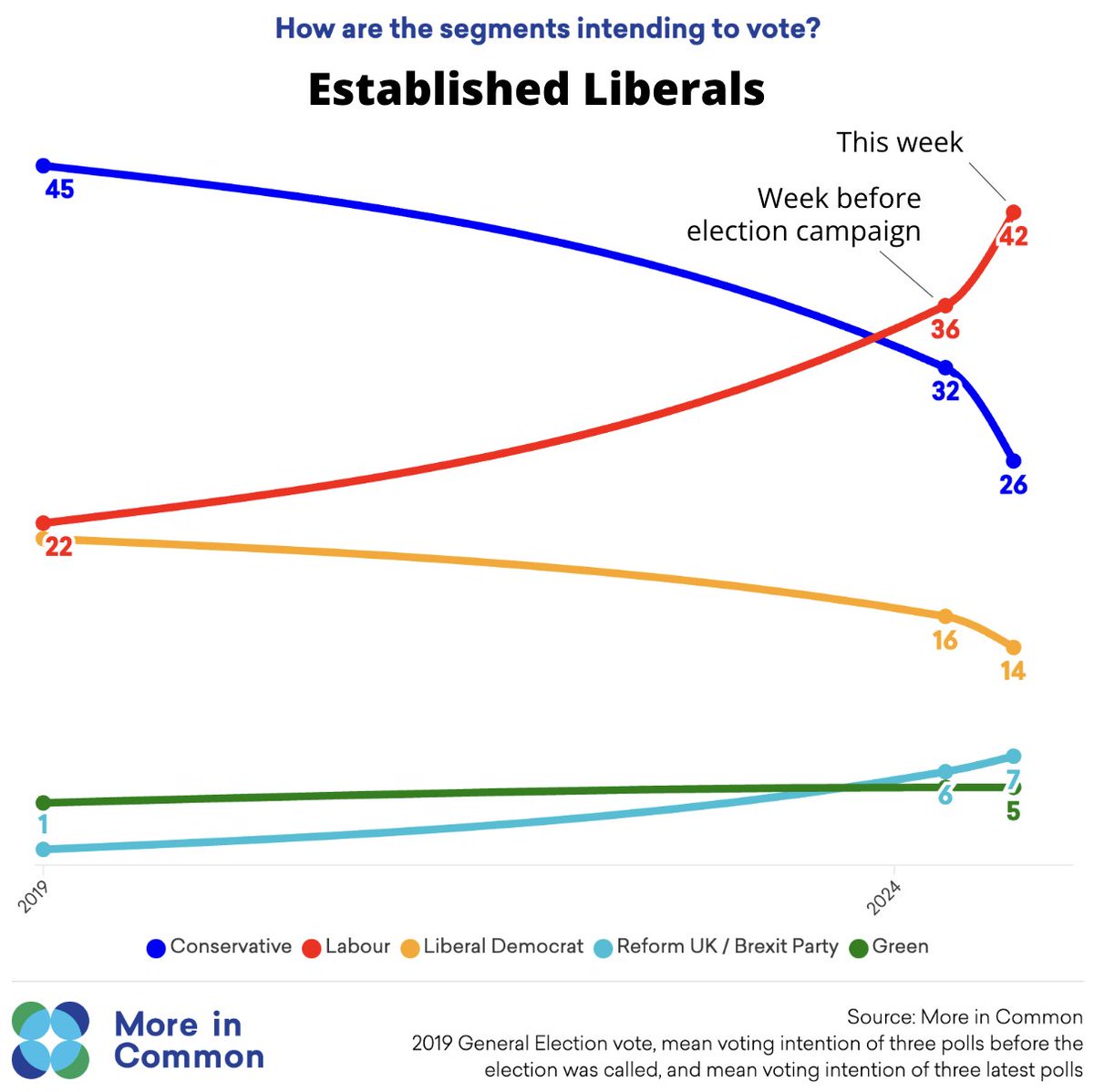
What about the other edge of the 2019 Coalition, Loyal Nationals: more socially Conservative/economically left voters who helped deliver Boris's victories in the Red Wall. Two stories here, sustained Tory decline, and gains for Labour, but also for Reform UK who move into second 
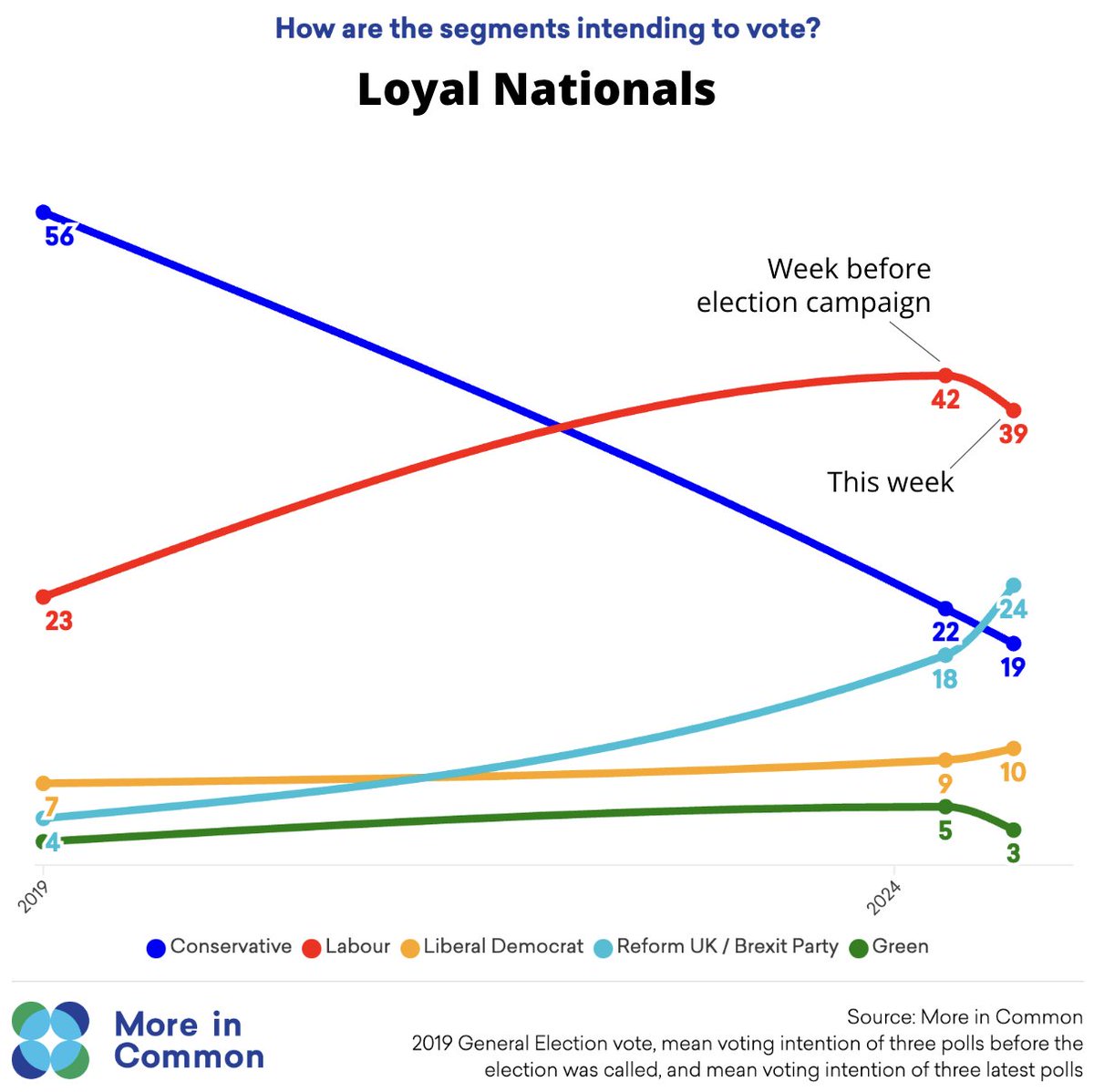
This group have by far the most positive view of Nigel Farage of any of the groups in- fact it's the only group with whom he is clearly in positive territory. In focus groups they tend to like his plain speaking and focus on immigration which is a top concern for Loyal Nationals 

Disengaged Traditionalists are another story of Tory decline, the highest Reform UK share of any group and Labour moving ahead with the group best captured by 'Essex Man' or white van person - individualist, strong belief in rules/order and self reliance. 
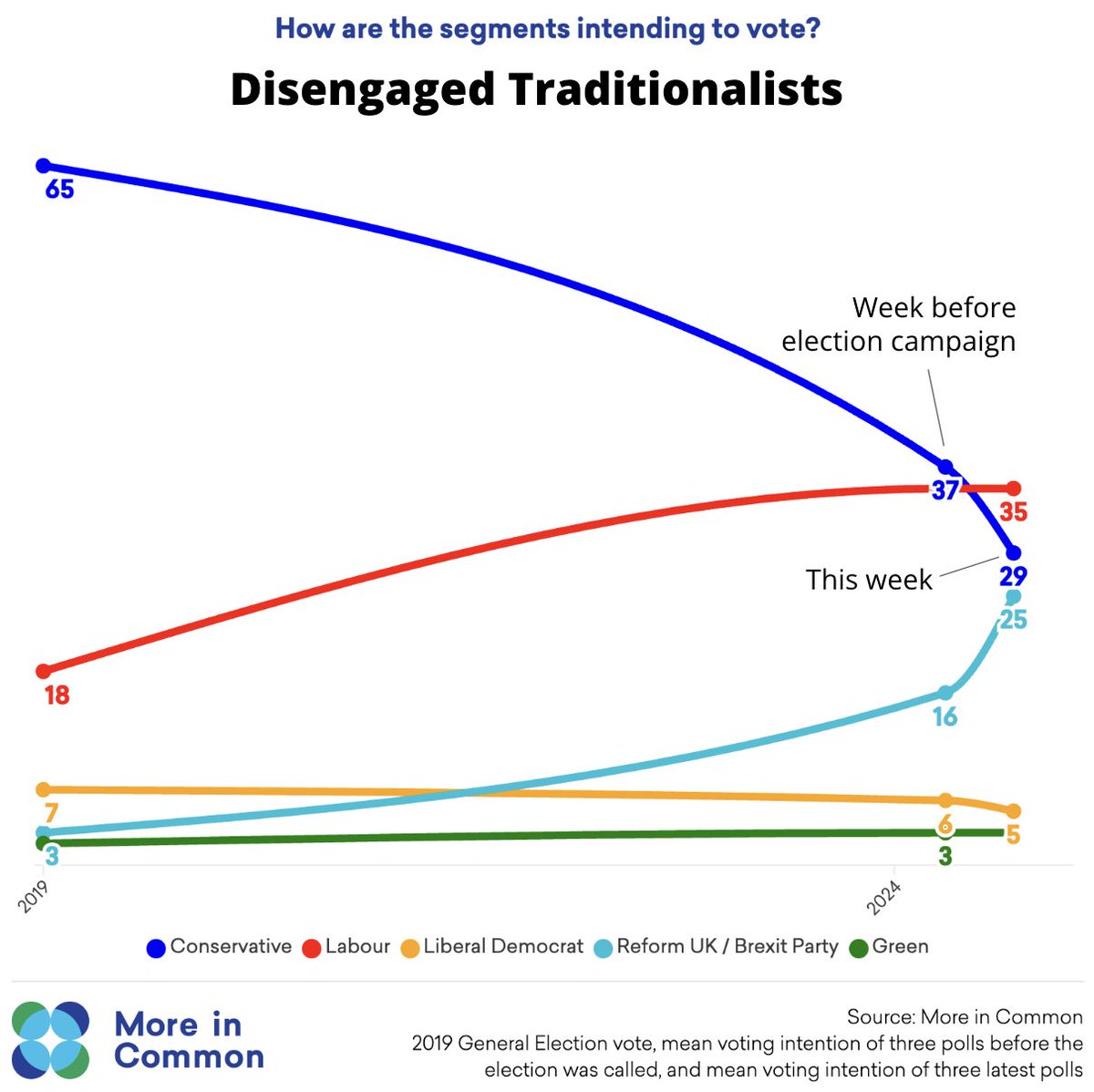
Unlike Loyal Nationals who are attracted to Reform because of Farage particularly, Disengaged Traditionalists are the most likely to see Reform policies as aimed at them. The other difference with Loyal Nationals is that LNs think Labour policies are aimed at them but DTs do not 
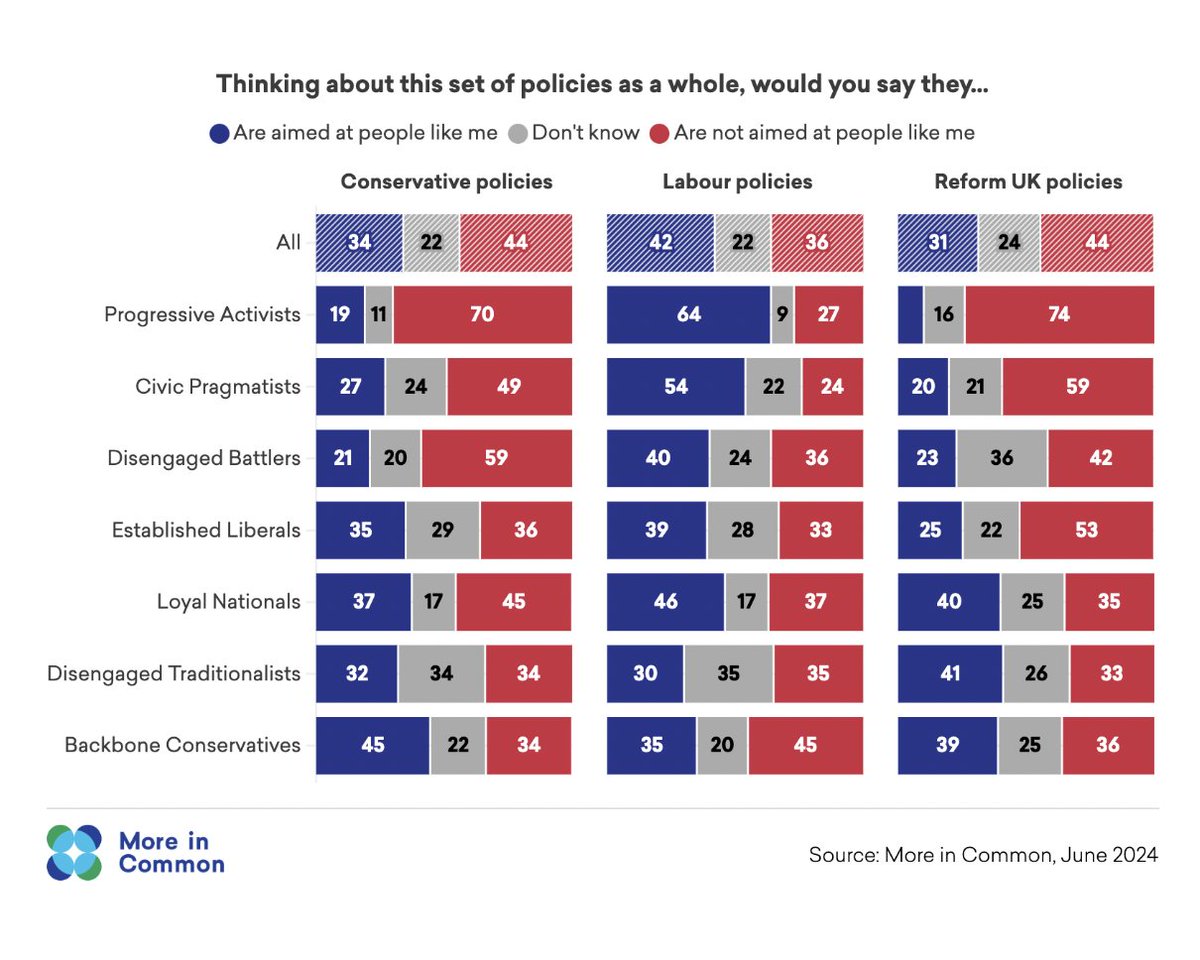
Finally Backbone Conservatives, the only group with the Conservatives still on top. Labour and Reform have made gains, though Reform's gains are lower than with other right leaning groups, in part the age profile of this group tending beyond the peak Reform age. 

Full slides and more findings here! moreincommon.org.uk/general-electi…
• • •
Missing some Tweet in this thread? You can try to
force a refresh


